From Sayyed Hassan Nasrallah to Hind Rajab, biggest newsmakers of 2024
By Alireza Akbari
From the genocide in Gaza and Lebanon to the martyrdom of Iran's former president to the assassinations of top Axis of Resistance leaders to Yemeni military operations against the Zionist entity, 2024 was an eventful year that hogged headlines.
The year saw assassinations of top Axis of Resistance commanders, from Gaza to Beirut, by the Israeli regime, and at the same time renewed resolve of the resistance movements to face the occupation.
Many of these events broke hearts, brought tears, and, in some cases, shocked the people.
Among the biggest newsmakers of 2024 were Iranian President Ebrahim Raeisi, Secretary-General of the Lebanese resistance movement Hezbollah Sayyed Hassan Nasrallah, Hamas leaders Ismail Haniyeh and Yahya Sinwar, and Mohammed Ali al-Houthi, the chief of Yemen’s Ansarullah resistance movement.
Hind Rajab and Khaled Nabhan were two Palestinians whose martyrdom at the hands of Israeli regime forces struck a chord with freedom seekers worldwide. Their names and stories began circulating widely online following their tragic killings amid the ongoing genocide.
The head of Kamal Adwan Hospital, Dr. Hussam Abu Safiya; American soldier Aaron Bushnell; WikiLeaks founder Julian Assange; Telegram CEO Pavel Durov; and Al Jazeera journalist Wael al-Dahdouh were among the other prominent newsmakers of 2024 whose stories captured headlines.
Ebrahim Raeisi
Ebrahim Raeisi, elected as the 8th president of the Islamic Republic of Iran in the 13th presidential election on June 18, 2021, secured the presidency with 61 percent of the vote.
In less than three years since taking office, the Iranian nation witnessed significant advancements under his leadership in domestic policy, foreign affairs, the economy, trade, production, and welfare.
In the realm of foreign policy, Raeisi's administration prioritized strengthening ties with neighboring countries and leveraging regional capacities to foster stability in West Asia, boost economic growth, and expand non-oil exports.
Additionally, the government achieved record-breaking oil exports, selling 1.5 million barrels per day, while successfully receiving payments despite US sanctions, delivering a substantial blow to America’s maximum pressure campaign.
However, a tragic incident occurred on May 19, 2024, when the helicopter carrying Raeisi and his accompanying delegation crashed in East Azerbaijan province. Raeisi, Foreign Minister Hossein Amir-Abdollahian, and several other senior officials were martyred.
Martyr Raeisi had traveled to northeastern Iran to inaugurate the Qiz Qalasi joint dam project alongside Azerbaijani President Ilham Aliyev.
As news of the crash spread early that day, the Iranian nation was gripped by sorrow and anxiety, with many praying for the well-being of their beloved president.
Following the confirmation of his martyrdom, the entire nation mourned the loss of the "people's president" who passed away while serving his nation.
Massive funeral processions in Tehran and other cities underscored the Iranian people's grief and resolve to honor their president. People from all walks of life took to the streets to bid him farewell.
In the wake of his death, Iran was flooded with condolences, with foreign delegations arriving in Tehran to pay their respects to the tireless president who prioritized Eastward Look and regional alliances.
The sorrow for the loss of Martyr Raeisi extended beyond Iran’s borders, with neighboring countries such as Syria, Lebanon, Pakistan, Iraq, India, and Turkey declaring public mourning.
On May 21, the UN flag was also lowered to half-mast in a gesture of respect for Raeisi’s martyrdom.
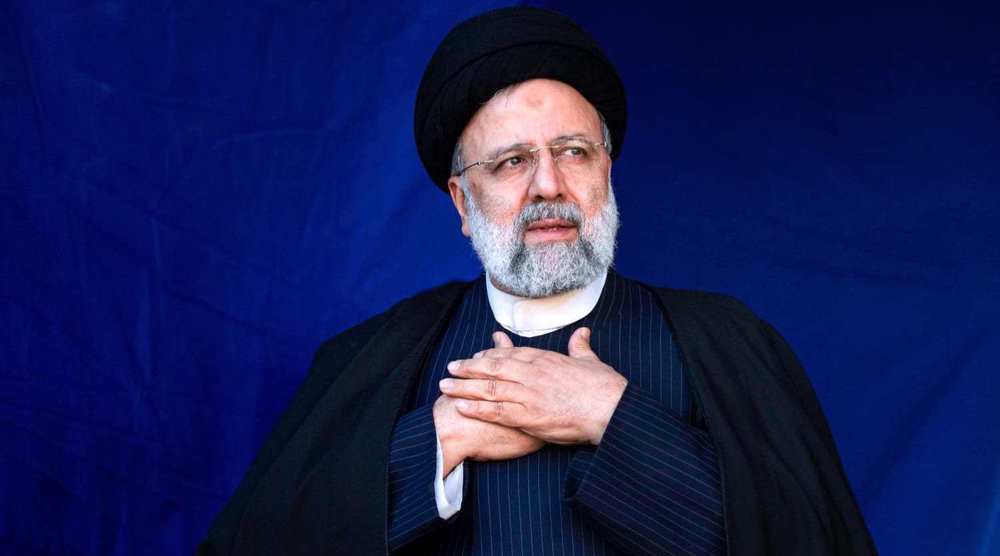
Sayyed Hassan Nasrallah
On September 28, the Lebanese resistance movement Hezbollah announced the assassination of its Secretary General, Sayyed Hassan Nasrallah, following massive Israeli airstrikes targeting residential buildings in southern Beirut.
Israeli warplanes conducted over 30 airstrikes on residential buildings in Burj al-Barajneh, Kafaat, Choueifat, Hadath, al-Laylaki, and Mreijeh, with local media reporting upwards of 300 casualties.
In the wake of Sayyed Nasrallah’s assassination, condolences poured in from countries across the world as well as resistance movements across the region.
Iran, Iraq, Lebanon, Syria, Russia, and Turkey were among the countries expressing their condolences over the martyrdom of the charismatic Hezbollah leader.
Given Hezbollah’s unwavering support for Palestine amidst Israel’s genocidal campaign in the Gaza Strip, and the movement’s pivotal role in combating terrorism in the region—particularly the Daesh terrorist group—freedom seekers worldwide felt profound grief over the martyrdom of Sayyed Hassan.
The virtual space was flooded with sorrowful messages offering condolences and commemorating the martyred leader’s illustrious life and legacy.
His martyrdom marked the end of an era that lasted 32 years with him at the helm of the Lebanese resistance movement. His leadership was defined by many glorious triumphs against the Israeli occupation regime as well as ironclad support for the Palestinian resistance.
Nasrallah was particularly instrumental in building alliances with other regional actors, including Iran and Syria, and in coordinating resistance efforts against the Tel Aviv regime.
His speeches inspired millions of people across the region, and his message of resistance and self-determination has resonated with oppressed people around the world, including Palestinians.
Despite numerous attempts to assassinate him and undermine his leadership, Nasrallah remained steadfast in his commitment to the cause of justice and liberation.
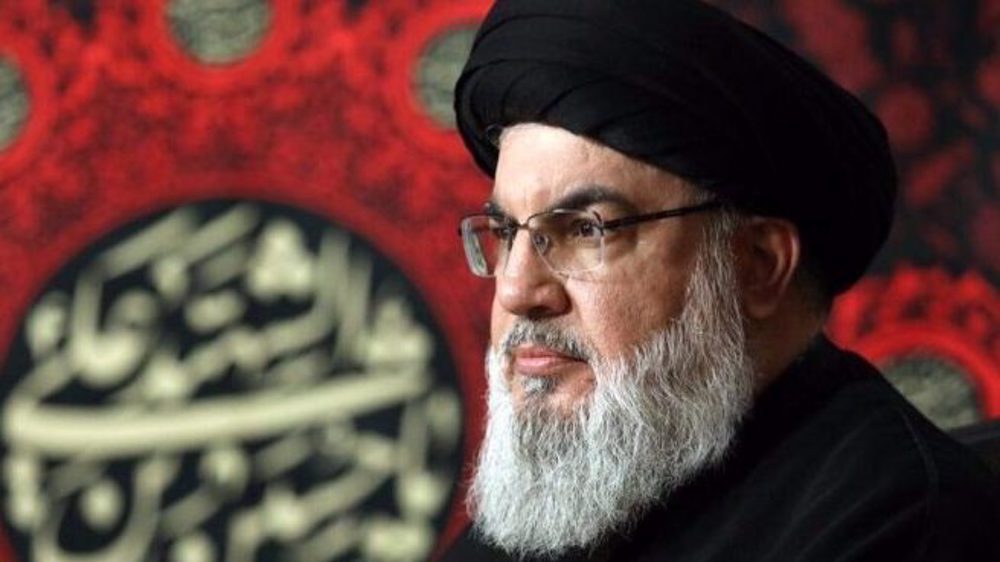
Ismail Haniyeh
Ismail Haniyeh, the head of the political bureau of the Palestinian resistance movement Hamas, was assassinated in a cowardly attack by the Israeli regime in Tehran in late July 2024.
Haniyeh was in Tehran to attend the swearing-in ceremony of Iran’s newly-elected president, Masoud Pezeshkian, who took the oath of office in the parliament.
Haniyeh played an active role in both the First and Second Intifada and served multiple prison terms as well. He also survived many assassination bids, including a suicide bombing in 2003.
After the events of October 7, 20023, Haniyeh used his political office to defend the Palestinian resistance operation against the illegal Israeli occupation and admirably led the popular movement.
“How many times have we warned you that the Palestinian people have been living in refugee camps for 75 years, and you refuse to recognize the rights of our people,” he was quoted as saying after the Palestinian resistance launched the unprecedented military operation.
Haniyeh also offered personal sacrifices as the leader of the most popular resistance group in Palestine, with at least 14 members of his immediate family killed in an Israeli airstrike on his family home in Gaza City in October.
In November 2023, his granddaughter and grandson were also killed. In April 2024, in a major tragedy, Haniyeh lost three of his sons and three grandchildren in an Israeli airstrike in the Gaza Strip.
In an interview with the Press TV in April last year, Haniyeh affirmed that Israel is "living in its worst situation" ever, enumerating the reasons for the decline and death of the Zionist entity.
On July 31, 2024, Haniyeh was also assassinated by the same enemy, marking the end of an era.
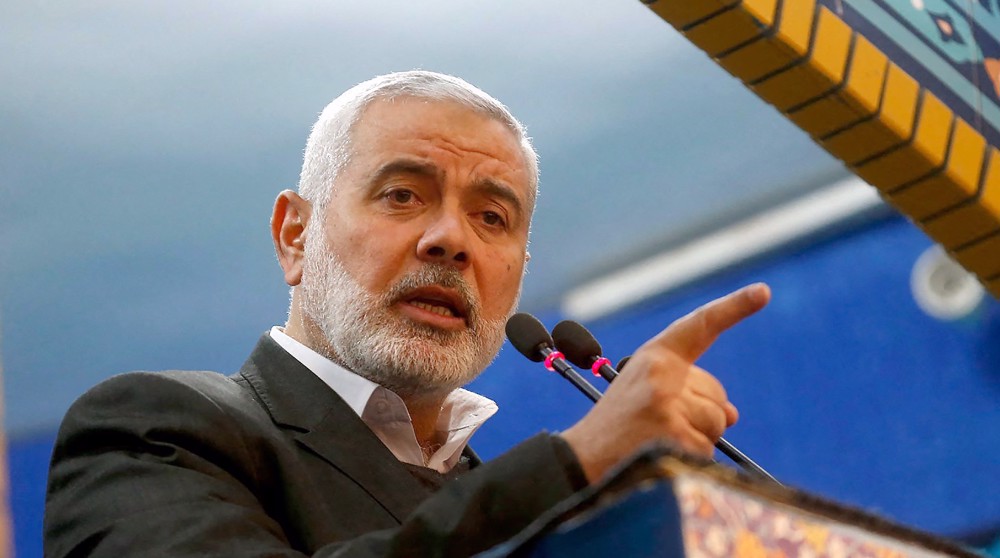
Yahya Sinwar
In a statement on October 18, the Gaza-based resistance movement Hamas confirmed the assassination of its iconic leader Yahya Sinwar, known as ‘Abu Ibrahim,’ in southern Gaza’s Rafah city.
Adorned in combat dress and carrying an AK-47 rifle, Sinwar was found dead under the rubble of a building after engaging in a battle with Israeli forces on the frontline of the war.
Sinwar’s key role in the events following October 7, 2023, placed him on the Israeli regime’s “kill list” for an extended period, but he managed to evade several Israeli assassination attempts.
However, the final footage of his martyrdom, recorded by an Israeli drone, shattered the Israeli media’s narrative that he was hiding in Hamas’ underground tunnels.
The footage showed Sinwar wearing a keffiyeh and sitting alone on a sofa in a house, where he confronted Israeli forces with all his might despite sustaining critical injuries.
Following his martyrdom, the virtual space was flooded with videos of Palestinian youth emulating him, wearing keffiyehs and sitting on sofas.
Sinwar became a symbol of resistance, as people shared his video alongside his fiery speeches.
For weeks, the news surrounding his martyrdom dominated headlines. His martyrdom was widely regarded as one of the most significant exposures of Israeli media propaganda.
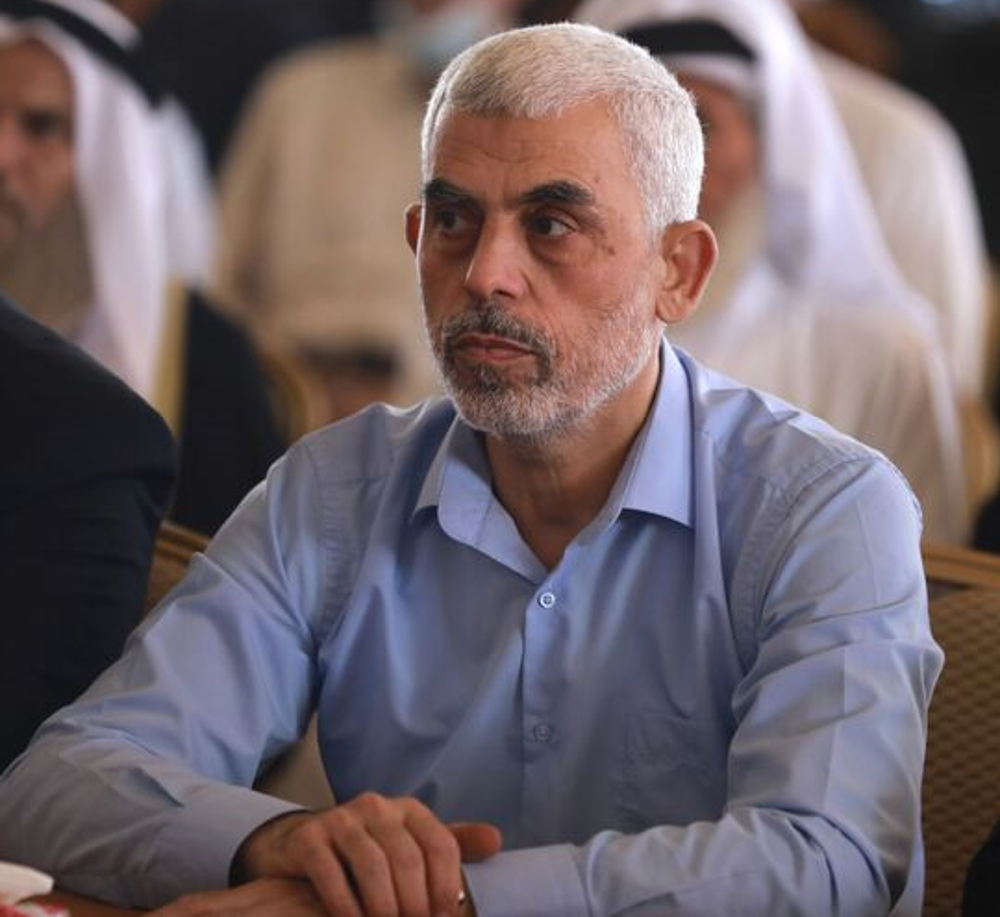
Abdul-Malik al-Houthi
Abdul-Malik al-Houthi, the leader of Yemen's Ansarullah resistance movement, has been a prominent figure in 2024 due to his vocal support for Palestine and his leadership in Yemen's pro-Palestinian operations against Israeli targets and Israeli-linked vessels in the Bab-el-Mandeb Strait.
Throughout 2024, al-Houthi has consistently expressed solidarity with the Palestinian cause, particularly in response to Israel’s genocidal campaign in Gaza.
Yemen’s operations against Israeli military targets in recent months have particularly garnered significant attention, positioning Yemen as a leading voice in the resistance axis.
On December 26, 2024, al-Houthi described Israel’s aggression in Gaza as "genocide in every sense of the word" and criticized Western nations for their silence on the suffering of Palestinian women and children.
Earlier, on August 1, 2024, he warned of severe consequences for Israel following the assassination of Hamas leader Ismail Haniyeh in Tehran, stating that the event had "elevated the battle to a wider scope and greater dimensions."
Under al-Houthi’s leadership, Yemeni forces have intensified their military operations against the Zionist entity, including the launch of long-range ballistic missiles targeting the heart of Tel Aviv.
Yemeni military has also ramped up its pro-Gaza operations in the Red Sea, targeting Israeli-linked merchant ships and military vessels, as well as those belonging to the US and the UK.
Notably, on January 15, 2024, Ansarullah forces attacked the Gibraltar Eagle, a US-owned bulk carrier.
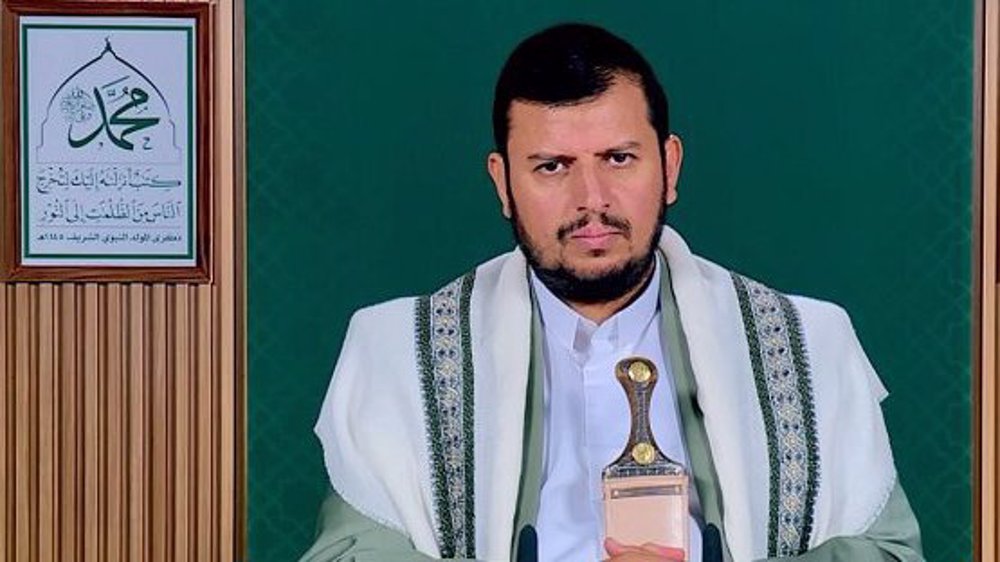
Khaled Nabhan
Palestinian grandfather Khaled Nabhan, whose 3-year-old granddaughter Reem was killed by Israeli forces in November 2023, became another Palestinian whose tragic story made headlines in 2024.
The video that captured the final goodbye between Nabhan and his granddaughter moved everyone to tears, highlighting the heartbreak of losing his innocent granddaughter in 2023.
Caressing Reem’s cold, lifeless body, Nabhan murmured a soul-stirring elegy for her. His words, “ruh-el-ruh”—an Arabic phrase meaning “the soul of my soul”—went viral in the aftermath of the tragic death of the innocent girl.
Since losing her, Nabhan gained prominence as Gaza’s “beloved grandfather,” and murals worldwide depicted the loving grandfather and granddaughter embracing each other.
Then, on December 16, the name of Khaled Nabhan surfaced on the internet again, but this time not for his kindness with Palestinian children or the beautiful moments spent playing with Reem.
This time, the news was of his martyrdom following an Israeli attack on Gaza City.
Nabhan was killed, along with several others, after a wave of aerial attacks and artillery strikes targeted Gaza City and the al-Nuseirat refugee camp.
The tragedy reignited the story of Nabhan and his granddaughter, with everyone on social media mourning the tragic loss and lamenting the ongoing Israeli brutality in the Gaza Strip.
Additionally, several heartfelt caricatures emerged, poignantly capturing the true emotion behind the relationship between the grandfather and granddaughter.
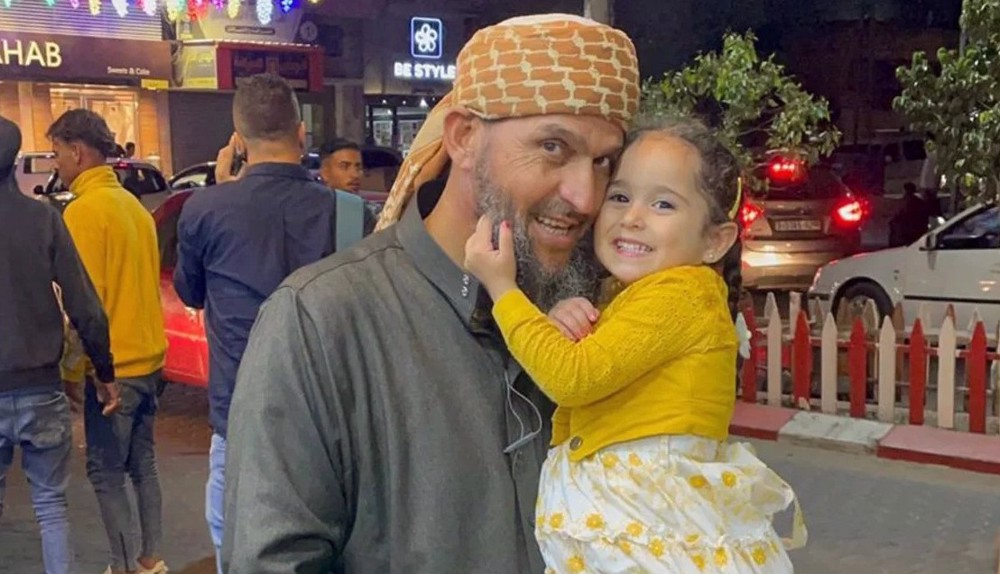
Wael Al-Dahdouh
After his wife and two of his children were killed in Gaza, Palestinian journalist Wael al-Dahdouh continued reporting from the Gaza Strip with his tragedy capturing international attention in 2024.
In October 2023, while live on air covering the events in Gaza, al-Dahdouh’s phone rang. He was informed that his daughter and wife had been struck.
The call was from al-Dahdouh's 21-year-old daughter, Khulood, who was bewildered and unable to provide clear details about what had happened.
Al-Dahdouh endured a heart-wrenching tragedy as he lost family members in an Israeli strike on the Nuseirat refugee camp in central Gaza.
The tragedy sparked global condemnation and prompted discussions about the dangers journalists face in Gaza.
Despite the immense loss, al-Dahdouh continued his journalistic duties, returning to report on the ongoing Israeli assault on the Gaza Strip. His resilience underscored the perilous conditions that journalists endure in war zones.
The tragedy continued for the veteran journalist in 2024. On January 7, al-Dahdouh's eldest son, Hamza, aged 27, was killed in an Israeli airstrike in Khan Younis.
The following day, January 8, two of al-Dahdouh's nephews, Ahmed and Muhammad al-Dahdouh, aged 30 and 26, respectively, were killed in another Israeli airstrike while traveling in a car.
Despite the tragedy of losing family members and sustaining injuries, al-Dahdouh continued reporting, earning recognition for his courage and commitment to journalism and covering the Israeli genocide.
In November 2024, the National Press Club honored him with the International John Aubuchon Press Freedom Award, recognizing his dedication to journalism under extreme adversity.
A month later, Reporters Without Borders presented him with the Courage Award during their Press Freedom Awards ceremony, highlighting his resilience and commitment to reporting from war zones.
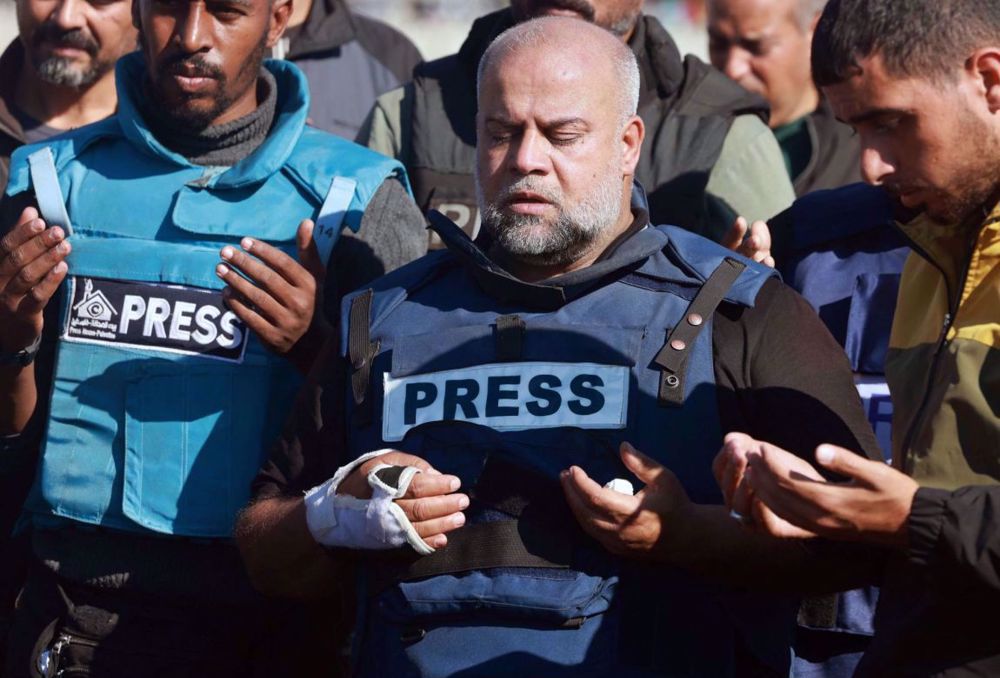
Dr. Hussam Abu Safiya
Dr. Hussam Abu Safiya, the head of Kamal Adwan Hospital in northern Gaza, became a prominent figure in 2024 after being arrested by Israeli forces during a raid on the last functioning medical facility in northern Gaza on December 27, 2024.
Despite sustaining severe injuries and facing constant threats, Dr. Safiya refused Israeli evacuation orders to abandon the hospital and its patients amid Israel’s genocidal war on Gaza.
Dr. Abu Safiya also paid a personal cost when his 15-year-old son, Ibrahim, was killed in an Israeli drone strike at the hospital entrance in late October.
At the time of filing this report, the whereabouts of Dr. Safiya and other medical staff from Kamal Adwan Hospital remained unknown. Doctors across the world have demanded his release.
A poignant image of him in a white robe, leaving the hospital and walking toward Israeli tanks, went viral and the image became a symbol of resilience and dedication to serving the Palestinian people.
In addition to the efforts of activists and his family, a campaign was launched under the hashtag #FreeDrHussamAbuSafiya, with many people, including medics worldwide, vocally demanding the release of the Palestinian doctor.
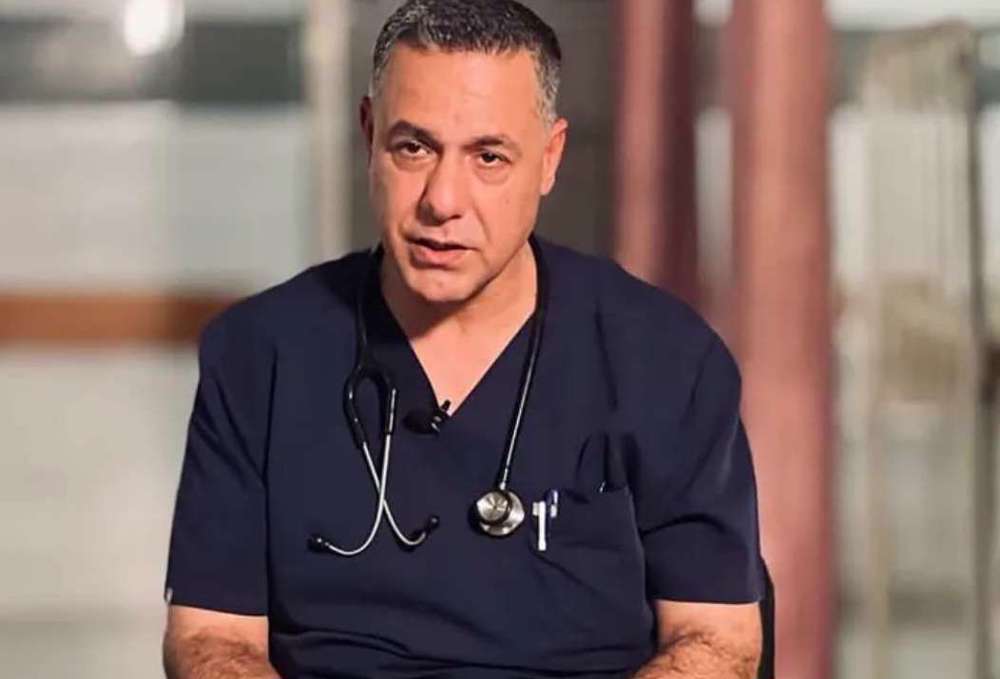
Hind Rajab
The 6-year-old Palestinian girl Hind Rajab was one of the thousands of Palestinians who fell victim to Israeli genocidal war crimes. Her tragic death resonated widely, triggering global protests.
Her name later became a symbol and anthem of the fight for justice against the genocidal war crimes committed by Israeli occupation soldiers in the Gaza Strip.
On January 29, 2024, Bashar Hamada, Hind’s maternal uncle, decided to escape the brutal bombardment by the Israeli regime. He attempted to flee his home in southern Gaza to protect his family from the imminent threat of death.
However, on his way to a designated “safe” area, he was stopped by the Israeli regime army in the Tal Al-Hawa neighborhood in the southern part of the besieged strip.
The stop was followed by a barrage of bullets fired at Hamada’s car, killing him, his wife, and three of their children on the spot. Hind, the sole survivor, called the Palestinian Red Crescent Society (PRCS) and her three-hour conversation with a PRCS worker later went viral.
“I’m so scared, please come,” were the last words of the innocent girl, which will forever resonate with freedom seekers across the world.
Following her tragic death, the Hind Rajab Foundation was established in her memory to honor her name and legacy. The foundation works to raise awareness of the plight of Palestinian civilians, especially children living under occupation, and aims to ensure such tragedies are not repeated.
In May 2024, students at Columbia University in the US took over Hamilton Hall and renamed it “Hind’s Hall” in honor of the six-year-old Palestinian girl.
In October 2024, the Brussels-based foundation filed a formal complaint with the International Criminal Court (ICC) against 1,000 Israeli soldiers for committing war crimes against Palestinians in Gaza.
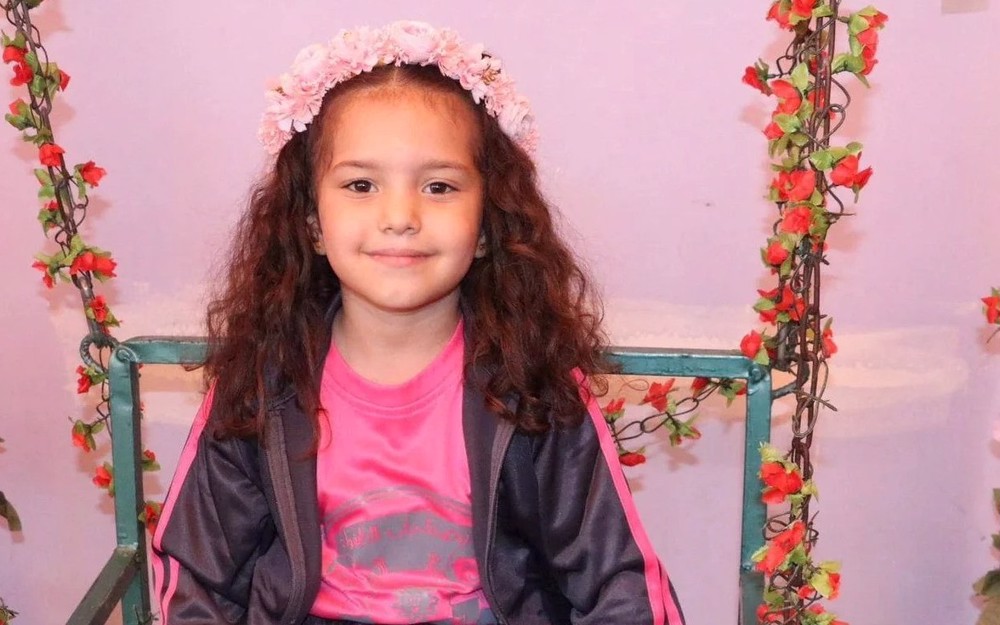
Aron Bushnell
“I’m an active duty member of the United States Air Force, and I will no longer be complicit in genocide. I’m about to engage in an extreme act of protest.”
These were the words of 25-year-old Aron Bushnell as he filmed himself outside the Israeli regime’s embassy in Washington in late February 2024.
Shortly thereafter, Bushnell set down his phone, poured liquid from a metal bottle onto himself, and set himself on fire, shouting several times, “Free Palestine.”
Tragically, Bushnell succumbed to critical, life-threatening injuries. His death sparked a wave of tribute, with American veterans burning their uniforms in honor of his protest.
The video of Bushnell’s final act went viral, and he became a symbol and source of inspiration for pro-Palestinian demonstrations across the United States.
In footage circulated in late February, a group of veterans was seen holding a banner reading, “Veterans say: Free Palestine! Remember Aron Bushnell.” They chanted, “Remember Aron Bushnell, he is not alone,” while continuing to burn their uniforms.
Bushnell’s sacrifice became a powerful symbol of protest against US complicity in the Israeli genocide in the Gaza Strip, which has killed thousands, most of them children and women.
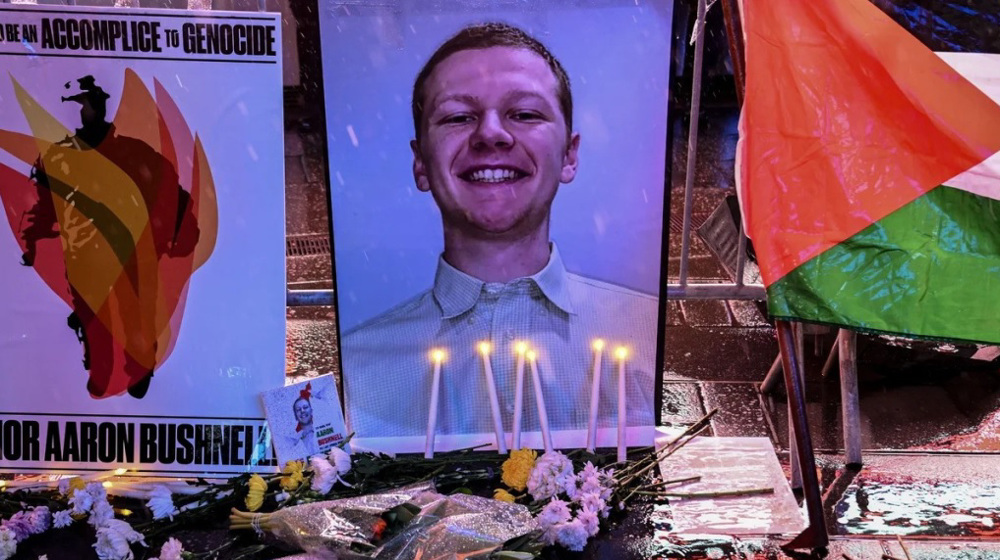
Julian Assange
In late June 2024, WikiLeaks founder Julian Assange was released from a high-security British prison after reaching a plea deal with US authorities, effectively ending his 12-year legal battle and allowing him to return to his home country of Australia.
Assange had spent five years in the high-security Belmarsh Prison in southeast London while fighting extradition to the United States, where he faced 18 criminal charges.
Following his release, WikiLeaks issued a statement on social media, stating: “This is the result of a global campaign that spanned grassroots organizers, press freedom campaigners, legislators, and leaders from across the political spectrum, all the way to the United Nations.”
Stella Assange, Julian’s wife, expressed gratitude, saying, “Words cannot express our immense gratitude to YOU – yes, YOU, who have all mobilized for years and years to make this come true.”
While his release brought widespread joy, it also sparked criticism among many activists and press freedom advocates. They argued that criminally charging Assange represented a threat to free speech.
“While we welcome the end of his detention, the US pursuit of Assange has set a harmful legal precedent by opening the way for journalists to be tried under the Espionage Act if they receive classified material from whistleblowers,” Reuters quoted Jodie Ginsberg, CEO of the Committee to Protect Journalists, as saying.
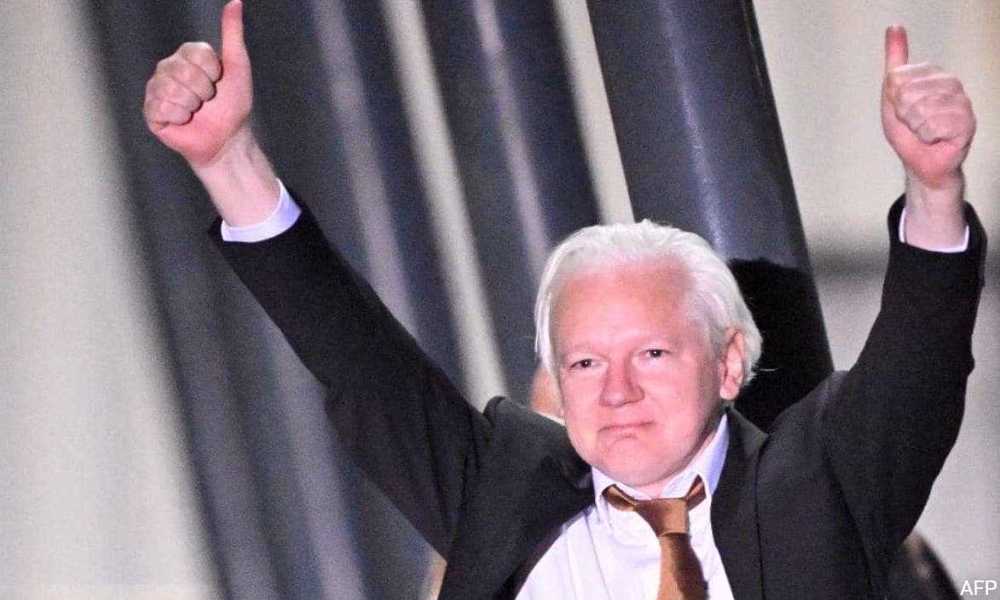
Hamid Nouri
Iranian citizen and former judiciary official Hamid Nouri became one of the most discussed figures of 2024 following his release after 1,680 days of illegal detention in Sweden.
Nouri, who was sentenced to life imprisonment in Sweden on politically motivated charges, was freed in June 2024 and returned to Iran after spending five years in Swedish custody.
Upon his arrival in Tehran, Nouri described his case as "extremely complicated, sensitive, and horrific," expressing gratitude to the Iranian authorities for securing his release from Swedish detention.
"The case took a long time, and I have said in a letter to my family that only God can release me, just as God liberated Khorramshahr," he said, referring to the liberation of the southwestern city from Saddam Hussein's invading army in May 1982 during the Iran-Iraq war.
Nouri also sent a message to the Mujahedin-e-Khalq Organization (MKO) terrorist group, which had brought the case against him in the Swedish court, as well as to the "child-killing" Israeli regime, both of which had "high hopes" for his conviction.
"I have another message for the miserable, displaced, traitor MKO terrorists who are seeking refuge in Albania now: I am Hamid Nouri, I am now in Iran with my family, where are you?"
"You used to say that even God could not free me. Now you see, God freed me."
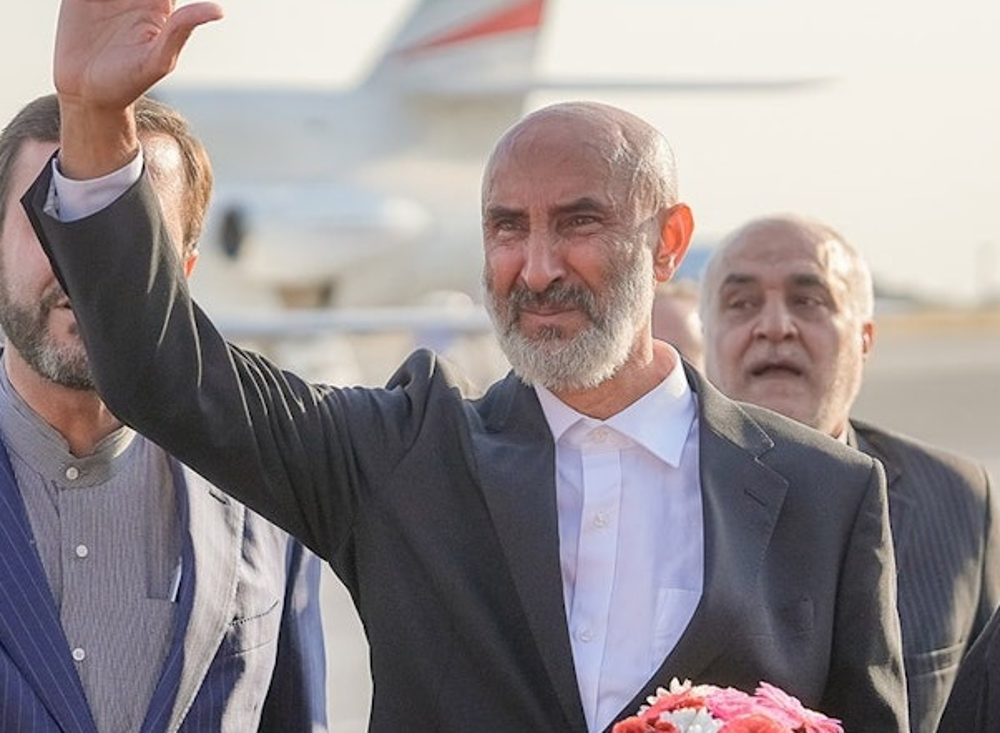
Pavel Durov
The 39-year-old Franco-Russian billionaire Pavel Durov, CEO of Telegram, also emerged as one of the key newsmakers in 2024.
Durov was detained at Le Bourget Airport near Paris in late August. According to local broadcaster LCI, French authorities had issued an arrest warrant for the Russian-born tech entrepreneur as part of a preliminary investigation into alleged offenses, including fraud, drug trafficking, cyberbullying, organized crime, and promoting terrorism.
However, his arrest sparked widespread reactions. Vladislav Davankov, a deputy in the Russian State Duma, stated at the time that Moscow should demand the immediate release of the Telegram founder.
“We need to get him out of there. I have urged Russian Foreign Minister Sergey Lavrov to appeal to the French authorities to release Pavel Durov from custody,” Davankov wrote on Telegram.
Davankov also described Durov’s arrest as “politically motivated,” reiterating that it could be used to “gain access to the personal information of Telegram users.”
Russia’s Foreign Ministry spokeswoman, Maria Zakharova, said Durov’s detention raised questions about whether international organizations would demand his release or “swallow their tongues.”
American journalist and political commentator Tucker Carlson suggested that Durov’s arrest in France served as a warning to platforms that oppose censorship.
Durov was released from custody later in August 2024 after being formally charged by French authorities. He was required to post €5 million in bail, was prohibited from leaving France, and was ordered to report to the police twice a week.
Following his release, Durov publicly addressed the situation, expressing surprise at his detainment and emphasizing Telegram's efforts to combat illegal activities on the platform.
He stated that holding a CEO accountable for third-party activities was misguided and underscored Telegram's commitment to balancing privacy with security.

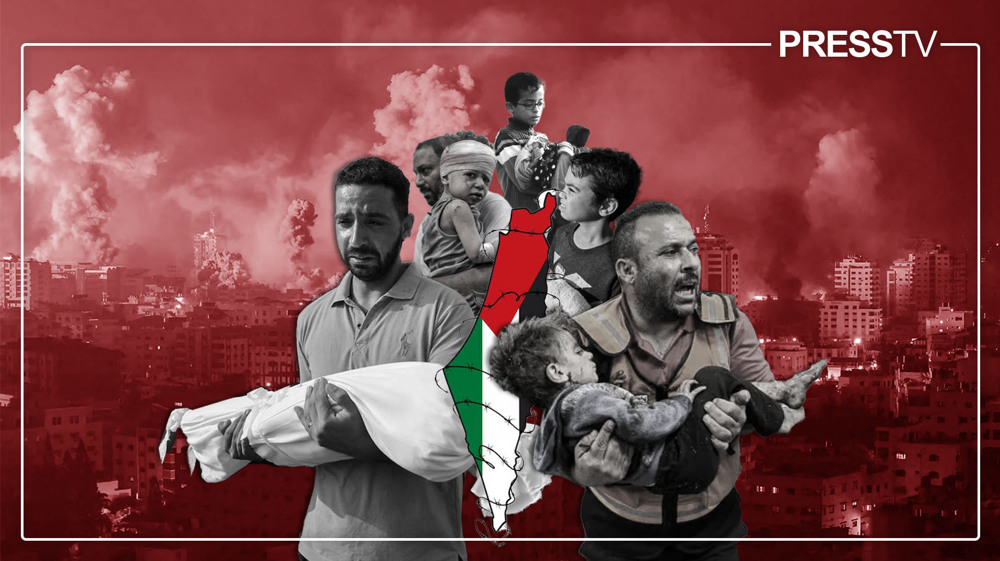
Lost childhood: In Gaza, a child is killed by Israel using US arms every 45 mts
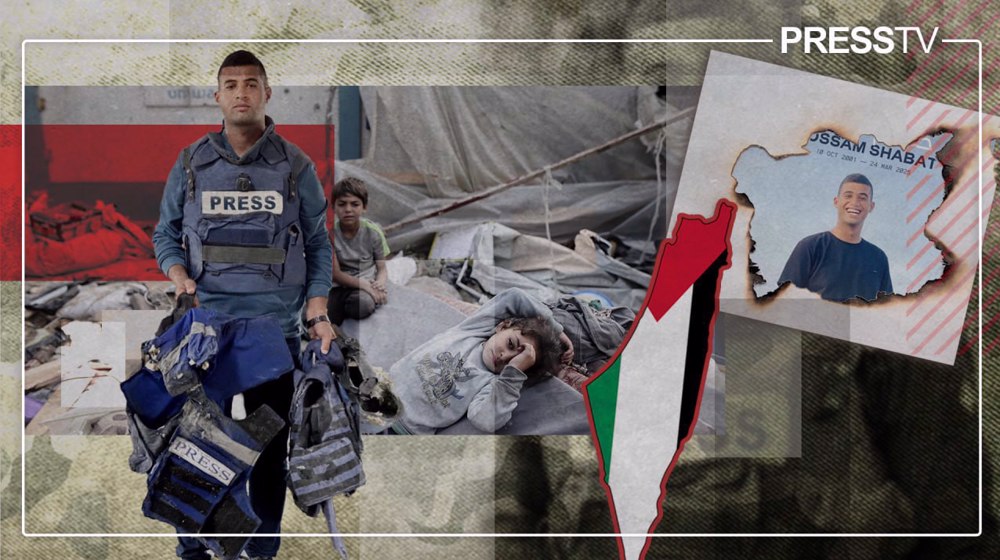
Hossam Shabat, 23-year-old Gaza journalist silenced for telling untold stories of genocide

Explainer: Trump doubles down on bid to grab Greenland – what’s really behind it?
Palestinian Red Crescent calls for independent probe into Israeli massacre of medics in Gaza
Iran making heavy investment in buying GPUs: Official
Israel’s Netanyahu crossed all limits to stay in power: Gantz
China slams US for unilateralism, protectionism, economic bullying with tariffs
‘Cutting-edge’: Iran says Arash-2 suicide drone will wipe out all threats within 2,000km range
Top Israeli diplomat expelled from African Union summit
Iran says not received US response yet to ‘generous offer’
VIDEO | Lebanese man killed as Israel strikes south in violation of ceasefire


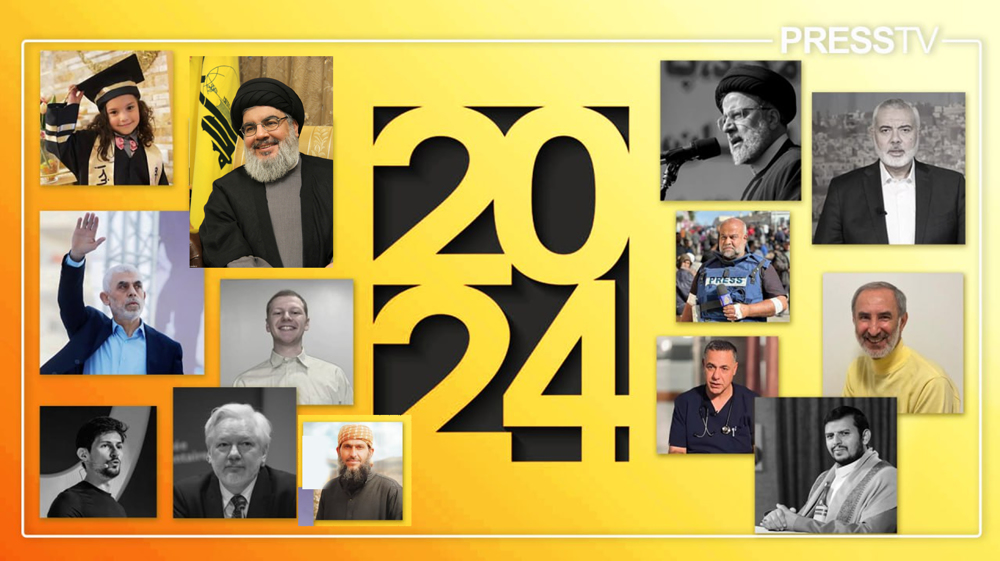
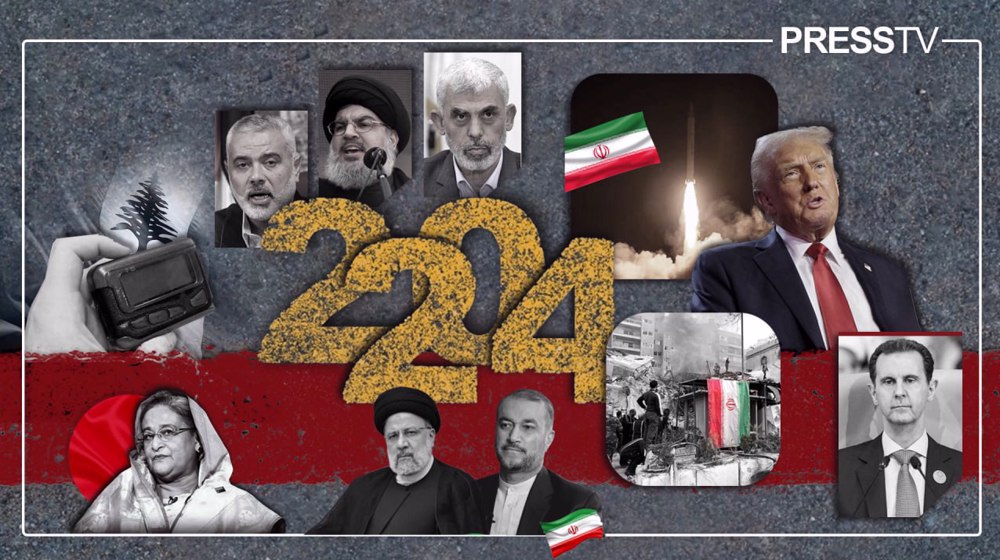




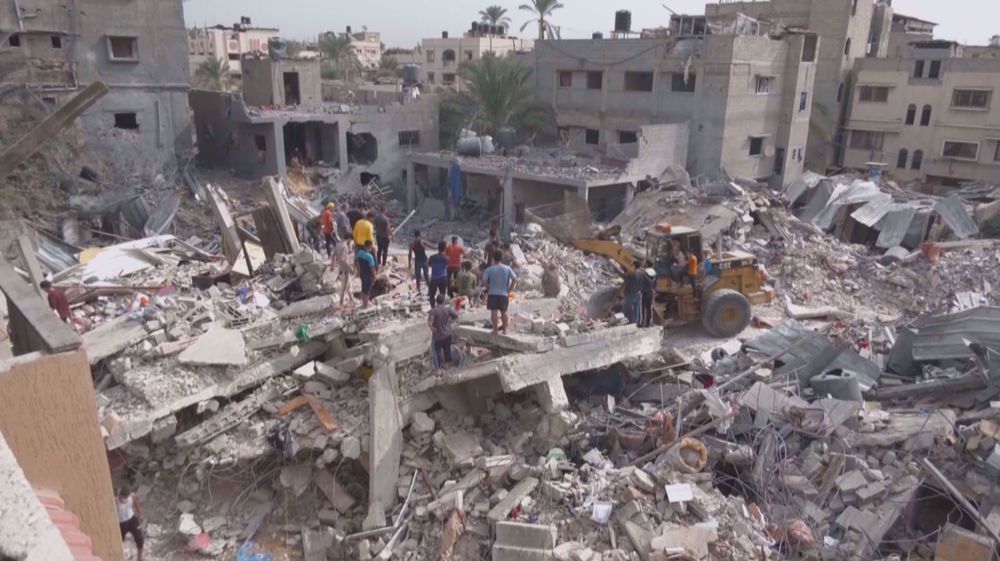
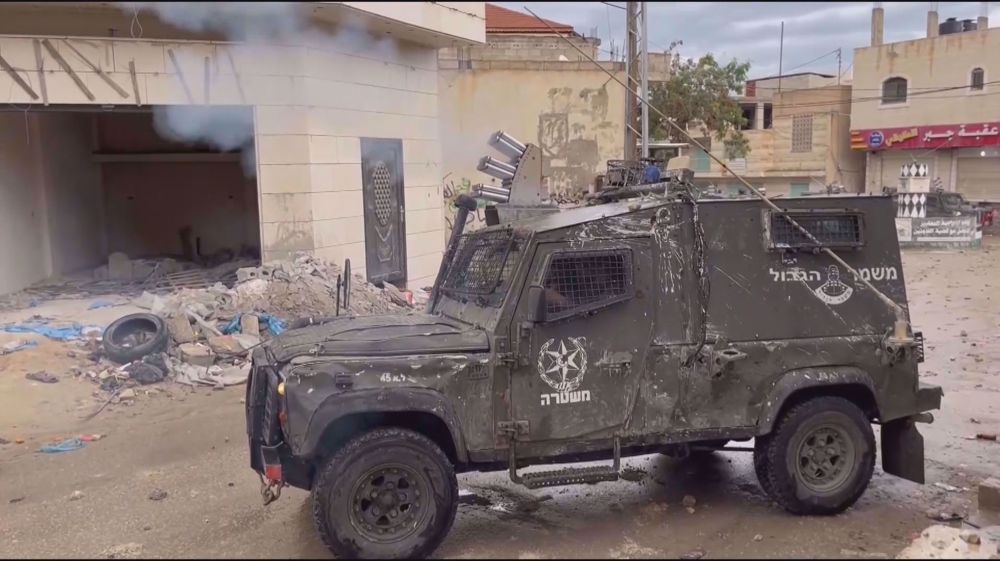
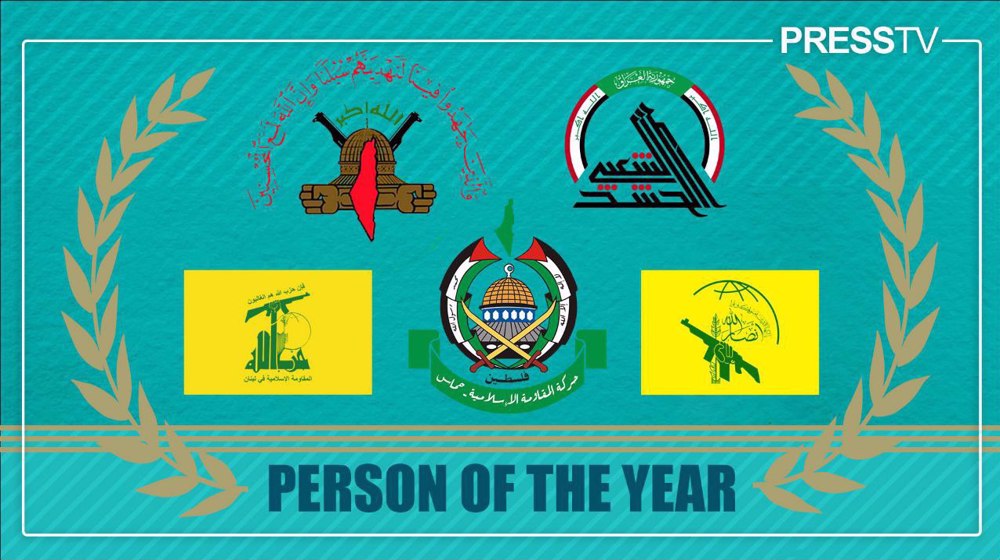

 This makes it easy to access the Press TV website
This makes it easy to access the Press TV website